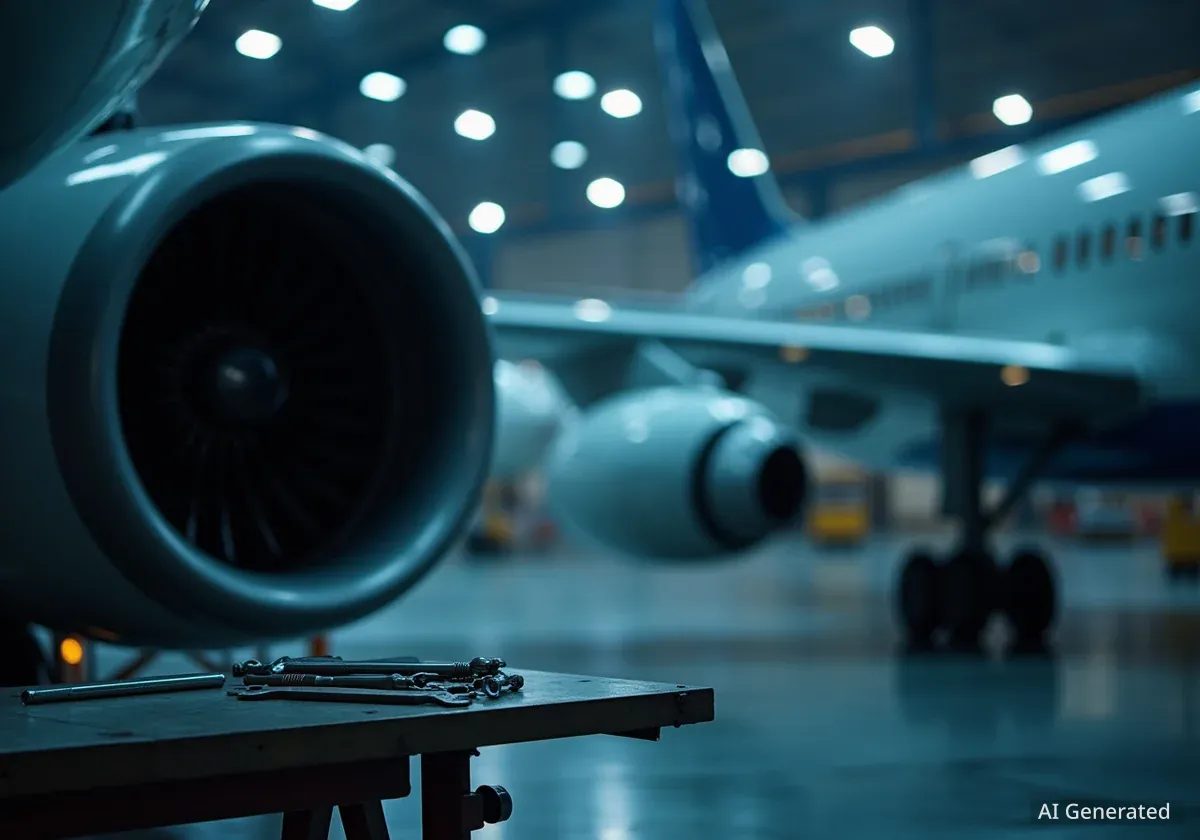American Airlines experienced significant operational disruptions across the United States on Wednesday following a technical issue that impacted its maintenance systems. The problem led to nearly 1,000 flight delays and dozens of cancellations, with the carrier's primary hub at Dallas/Fort Worth International Airport (DFW) being one of the most affected locations.
The Fort Worth-based airline confirmed the system malfunction in a public statement, noting that its teams were actively working to resolve the problem. While troubleshooting was underway, staff resorted to alternative procedures to manage flight departures, which contributed to the widespread delays affecting passengers nationwide.
Key Takeaways
- A technical issue with American Airlines' maintenance applications caused extensive flight delays on Wednesday.
- According to FlightAware data, 996 flights were delayed and 63 were canceled across the U.S. by early afternoon.
- The airline's largest hub, DFW International Airport, saw 405 delays and 38 cancellations.
- American Airlines implemented manual procedures to process flights, which slowed down operations.
- This incident follows a separate technology failure at a Dallas-area air traffic control facility just days earlier.
Nationwide Impact of the System Outage
The technical problem began affecting American Airlines' operations early on Wednesday, creating a ripple effect that spread throughout its national network. By 1:30 p.m., flight tracking service FlightAware reported that 996 American Airlines flights had been delayed within the United States. This figure represents a significant portion of the airline's daily schedule.
In addition to the delays, the carrier was forced to cancel 63 flights nationwide. The issue stemmed from a problem within the airline's maintenance applications, which are critical for ensuring aircraft are properly cleared for departure. These systems manage records, track maintenance tasks, and confirm that all safety checks are complete before a plane can be released for its next flight.
In a statement provided to The Dallas Morning News, the airline acknowledged the situation.
"American is aware of a technical issue impacting some of our maintenance applications. Our teams are actively troubleshooting. We apologize to our customers for the inconvenience."
DFW Airport Hub Sees Major Disruptions
As the central hub for American Airlines, Dallas/Fort Worth International Airport experienced a disproportionate share of the disruptions. The airport is a critical connection point for both domestic and international travel, meaning delays there have significant downstream consequences for the entire airline network.
FlightAware data highlighted the severe impact at DFW. By early afternoon, 405 of the carrier's flights operating through DFW were delayed. Furthermore, 38 flights scheduled to depart from or arrive at the airport were canceled entirely. These numbers accounted for a substantial percentage of the day's total disruptions for the airline.
DFW Hub by the Numbers
Dallas/Fort Worth International Airport is American Airlines' largest hub. The airline operates hundreds of daily flights from DFW, connecting passengers to destinations across the globe. An outage of this nature at such a critical operational center inevitably causes widespread systemic delays.
The concentration of delays at DFW demonstrates how a technical issue at a major hub can quickly cascade. A delayed aircraft in Dallas can lead to late arrivals in other cities, causing further delays for subsequent flights that were scheduled to use that same aircraft.
Airline's Response and Mitigation Efforts
In response to the system failure, American Airlines confirmed it was using manual workarounds to continue operating. The carrier explained that its teams were forced to rely on alternative methods for finalizing flight preparations, a process known as "closing out" a flight.
"Our team is utilizing alternative procedures for closing out flights which is resulting in some delayed departures," the airline stated. This manual process is considerably slower and more labor-intensive than the automated digital system, directly contributing to the backlog of flights waiting to depart from gates across the country.
Closing out a flight involves completing all final paperwork, verifying passenger manifests, checking baggage loads, and confirming that all required maintenance and safety protocols have been signed off. When the primary software for this fails, airline personnel must perform these tasks by hand, leading to inevitable slowdowns.
A Pattern of Recent Technology Failures
This latest technical problem for American Airlines comes just days after a separate technology-related incident caused major travel disruptions in the Dallas-Fort Worth area. Last week, a technology failure at a regional air traffic control facility led to a multi-hour ground stop at both DFW Airport and Dallas Love Field.
Previous Air Traffic Control Outage
The earlier incident was not related to American Airlines' internal systems but had a severe impact on its operations. The ground stop halted all air traffic in one of the nation's busiest airspaces, forcing airlines to cancel hundreds of flights. American Airlines officials reported that they had to cancel over 600 flights between Friday and Saturday due to that outage.
The proximity of these two major technological failures highlights the vulnerability of modern aviation to system outages. The industry relies heavily on a complex web of interconnected digital platforms for everything from air traffic control and flight scheduling to aircraft maintenance and passenger services. When one of these systems falters, the consequences can be immediate and widespread, affecting thousands of travelers and costing airlines millions in operational recovery and customer compensation.
As of Wednesday afternoon, American Airlines had not provided an estimated time for the full restoration of its maintenance systems. Passengers were advised to check their flight status directly with the airline before heading to the airport.





